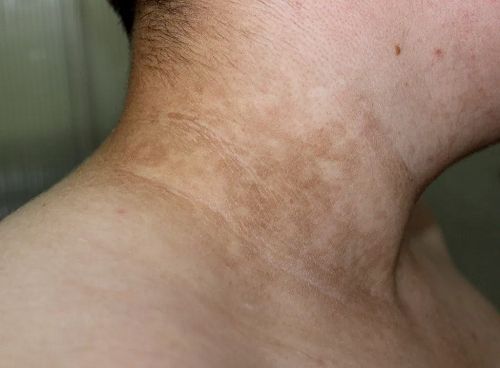 |
| asbestos exposure symptoms skin By https://www.healthline.com/health/sarcoidosis |
If a person is exposed to a small amount of asbestos, they may develop a rash, which usually appears as circular bumps or white raised areas on the skin. These rashes often occur only on the hands and feet. Itching, and sometimes bleeding, is also quite common.
People who work in asbestos-contaminated environments, such as in a cement plant, may notice a change in their skin. Chances are, the areas where asbestos dust was brushed away have become much drier. The result? A skin that looks flaky and dry.
Asbestos Exposure Symptoms Skin
It is also possible for people to develop several asbestos exposure symptoms simultaneously. For example, if someone has had several years of exposure to asbestos in a factory, there is a possibility that they will develop various types of skin disease. For example, someone who worked in a cement plant for over five years may develop early stages of gingivitis, or gingivitis is inflammation of the gums, also known as "gingivitis." |
| Asbestos Exposure Symptoms Skin - By https://bestlifeonline.com/health-over-40/ |
There is some debate about the possibility that some people may be more prone to developing certain types of asbestos-related disease than others. However, there is no clear-cut answer.
For some people, the effects of exposure to asbestos are not only physical in nature, but also include the development of breathing difficulties and other respiratory problems. In some cases, individuals may begin to experience a high degree of pain in the back, neck, and ears, along with other indications of increased lung function.
If an individual has long been exposed to asbestos and develops skin irritation in that skin area, it is considered a mild form of asbestos exposure. Other forms of asbestos-related disease can develop when the individual is exposed to asbestos over a longer period of time. It is most common for people who suffer from asbestos-related disease to suffer from a combination of symptoms.
Because there is no single test that can determine exactly what the signs of asbestos exposure symptoms will be, patients can remain in the dark about the signs that their condition is worsening. Many individuals who suffer from this condition do not even know that their conditions are developing.
It is important for people to seek medical treatment as soon as they become aware of the possible development of asbestos exposure symptoms. This is because the longer that people wait to find out about the signs of a possible asbestos exposure, the more serious the situation may become. People who fail to receive treatment may suffer from permanent damage to their lungs.
One of the biggest risks associated with the development of these symptoms is damage to a person's lungs. The earlier that a person can receive treatment for their asbestos exposure symptoms, the better chance they have of surviving the symptoms and of keepingtheir lungs healthy.